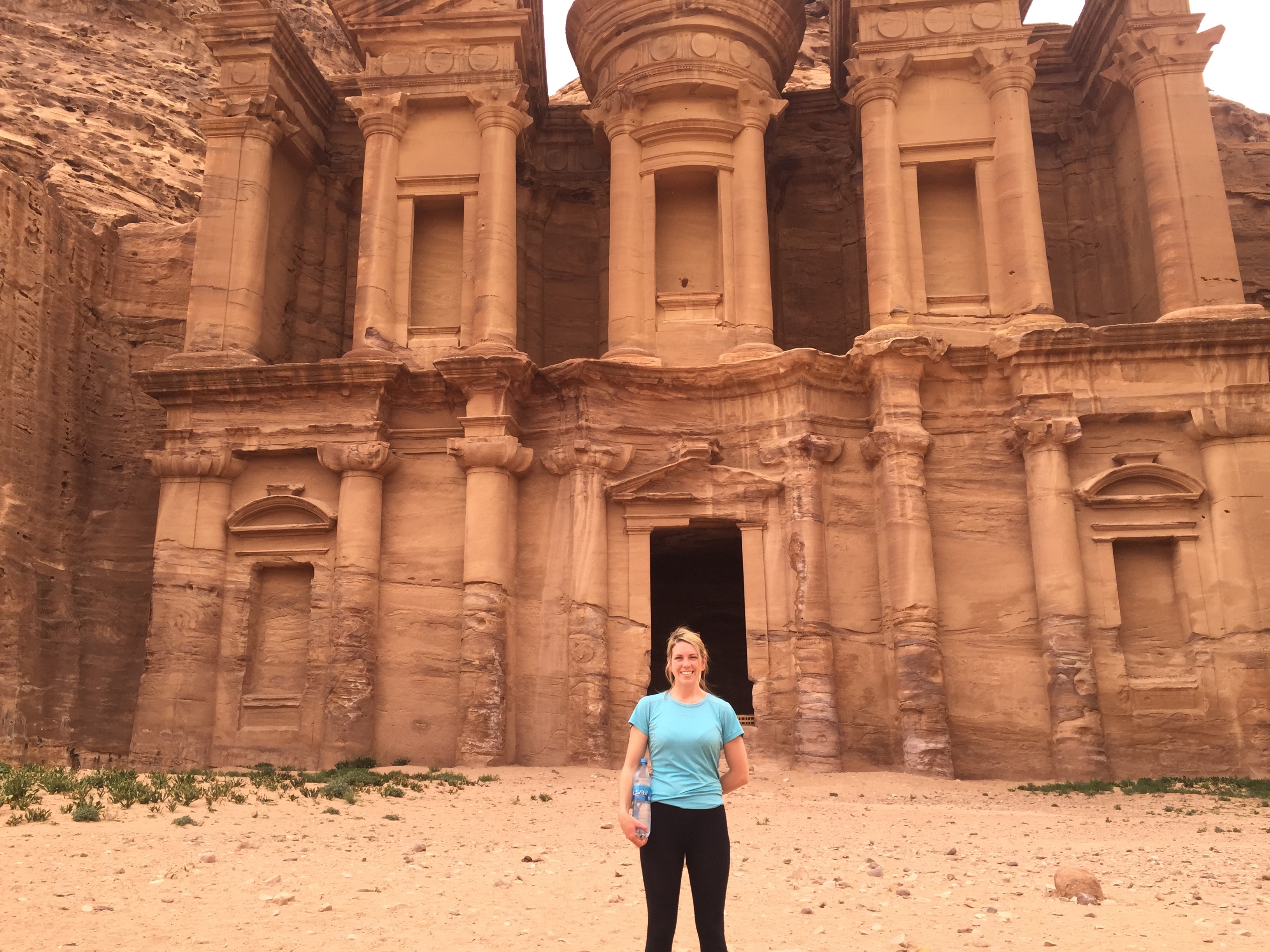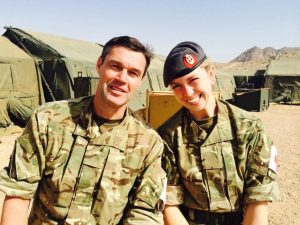
By Pte Isobel Draper, 208 (Liverpool) Fd Hosp
The overall aim of Exercise Shamal Storm was to finally validate the concept of a 2/1/2/12 air deliverable deployed field hospital into austere conditions, similar to those on previous deployments. The exercise tested all logistical aspects of deployment such as packing and unloading the kit and equipment correctly whilst ensuring it travelled safely and remained in good working order. The exercise also tested the field hospital’s capability to set up the tents for the different departments correctly and move all equipment in to their relevant clinical areas within the desired allocated time frame, which is 16 hours. After 12 long, exhausting hours, 34 Field Hospital successfully achieved this task, thanks to great teamwork and clear guidance from our team leaders.
I was informed of the exercise after a trawl was sent out to all in my Army Reserve unit, 208 (Liverpool) Fd Hosp. At present, I am a third year student nurse due to qualify in August, with no past deployment experience. I wasn’t sure at first if I was eligible to go on the exercise to Jordan. However, my Regular Nursing Officer based at the unit encouraged me to apply and supported my decision, explaining how it would be a fantastic opportunity to integrate and work alongside another Regular field hospital to give me a taster of what possible deployments in the future may be like. The exercise only required Reservist volunteers for two weeks, which fitted in perfectly with my university timetable of the Easter period. Four other members of 208 also volunteered to participate on the exercise, making settling in very easy and helping tremendously with the planning and organising in previous weeks before deployment.
Whilst out in Jordan the heat took a little getting used to, especially when waiting for the air conditioning to be fitted inside the tents! During the exercise my role was assist the nursing staff as a health care assistant in the Intensive Care Unit. The intensive care unit had the capacity to care for two patients who required pulmonary ventilation following major trauma and surgery. The exercise helped me to familiarise myself with equipment used by the Armed Forces and the clinical procedures that we follow when deployed, such as medical eligibility rules and standard procedures during a major incident. Although the exercise was not to test clinical validation, there were clinical moulage scenarios run daily to create a realistic environment and help the team interact with one another, just as they would if deployed.
During the exercise we were fortunate enough to have a visit from the King of Jordan, King Abdullah. The King was keen to experience the clinical practices and set up of British field hospitals. The visit from the King generated a lot of media attention from British tabloids. I was asked as part of the exercise to attend media training, in order to be interviewed and express my opinions of the exercise from a Reservist perspective. Luckily for me, the media training was very thorough and prepared me well for challenging questions from inquisitive news reporters from both the Telegraph and Soldier magazine.
Unlike other exercises, we were allocated a couple of days to attend cultural visits. As we were in Jordan, I thought it silly not to see one of their national treasures known as Petra. Petra is incredible, home to fantastic views and a unique, vast city carved into sheer rock face. The day not only supplied us with awe-inspiring views, but also numerous camel and donkey rides which was very entertaining! We also got to meet the military working dogs that were deployed on this exercise for several months. It was fascinating to watch the dogs train and interact with their handlers; we were also fortunate enough to chat with the on-site vet who showed us around their veterinary surgery and discussed the routine practices when deployed. It was interesting to witness the key differences between veterinary and human emergency medicine and listen to those stories of when dogs were actually treated in ‘Camp Bastions’ role three field hospital when injured out on patrol in Afghanistan.
The exercise was to test the Army’s readiness and capability to pack up and travel anywhere worldwide at a moment’s notice and provide high quality, professional care to our troops on the ground. As exercises go, it was not without its challenges. The exercise identified several areas that require further development before future deployment. However, I feel confident that if we were called upon again as Reservists, we would integrate successfully into a Regular unit and assist greatly with future planning of exercises and possible deployments into unknown territories.







